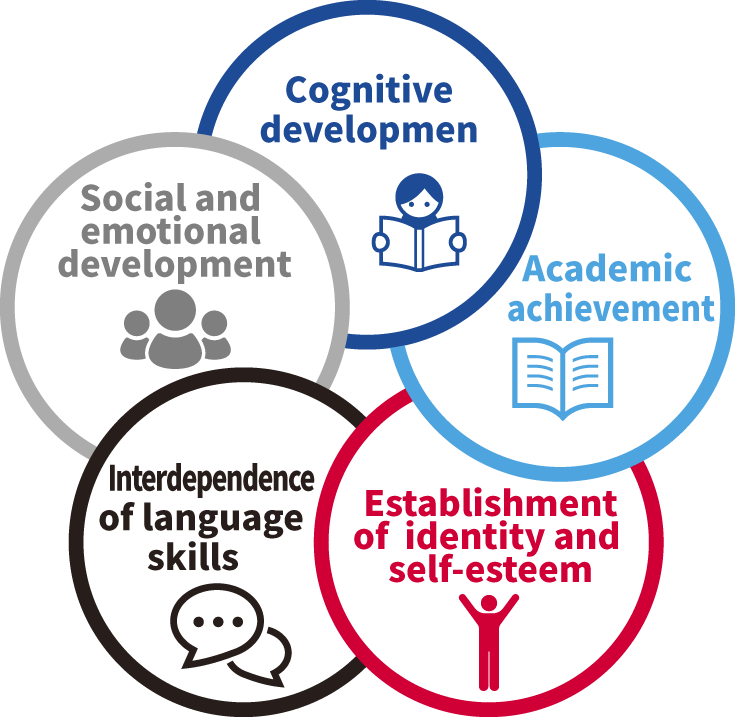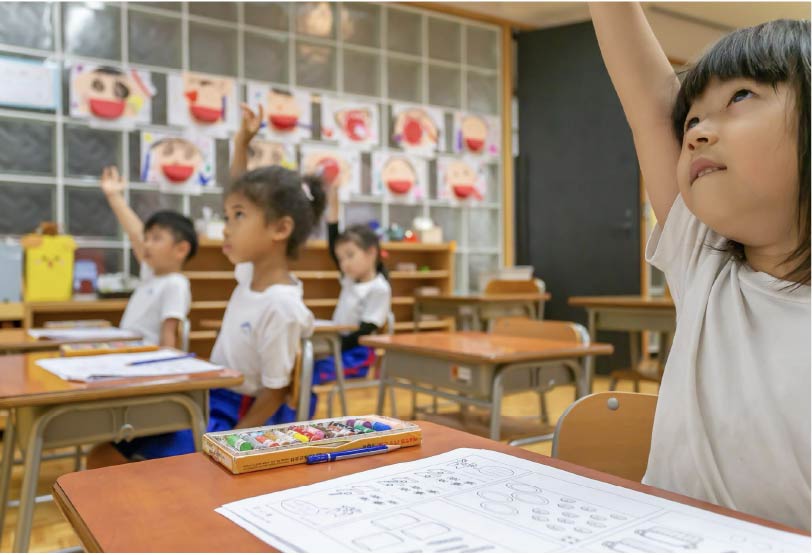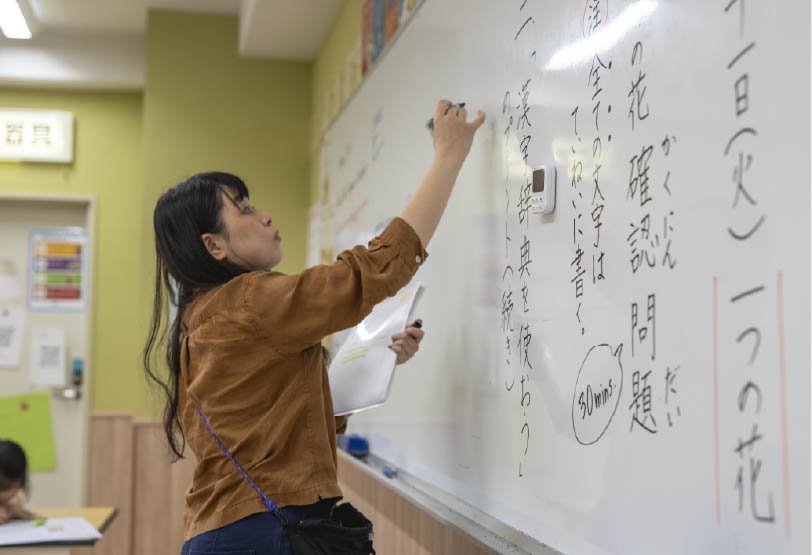
The native language studied at AIC World College is Japanese.
Language and cultrure sutdy to be learned as Japanese, not Japanese education to be learned by foreigners.
We believe that learning Japanese language and culture is very important for our children’s future.
Valuing the native language and culture fosters children’s identity and self-esteem, and enhances cross-cultural understanding and communication skills.
The language skills developed in the native language also aid in the learning of a second language, and the balanced development of both languages promotes richer social and emotional growth.
We believe that this is an important foundation for children to grow intellectually, academically, and emotionally healthy and to play an active role in the global society.
Preschool
Native language education corresponding to the elementary school entrance examination level to develop potential.
Bilingual education emphasizes Japanese culture.
We value the native language (Japanese) and also teach greetings and manners such as “Ohayo Gozzaimasu (Good morning)”, “Konnichiwa (Hello)”, “Arigato gozaimasu (Thank you).”
In Japanese language classes, we incorporate many activities that allow children to use their five senses to read, write, and create, in order to deepen their interest in letters and numbers.

Elementary School
A dedicated teacher teaches Japanese five times a week.
Students will learn the knowledge and skills of the Japanese language in a typical Japanese elementary school.
We also incorporate learning through “kanji drills” and “calligraphy” as well as reading.
Students will learn about the history and environment of the region through field trips and other activities, and make presentations on their studies.
Regular tests are also conducted to check the academic level of the students.

